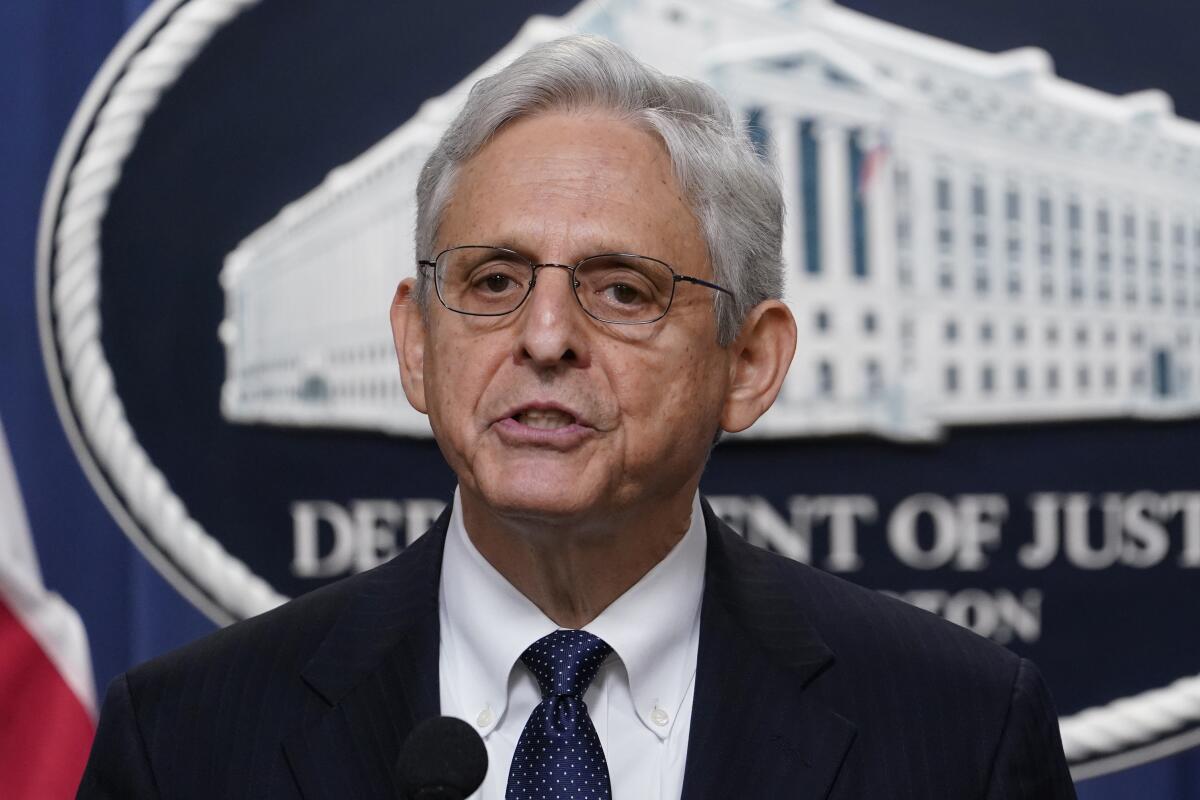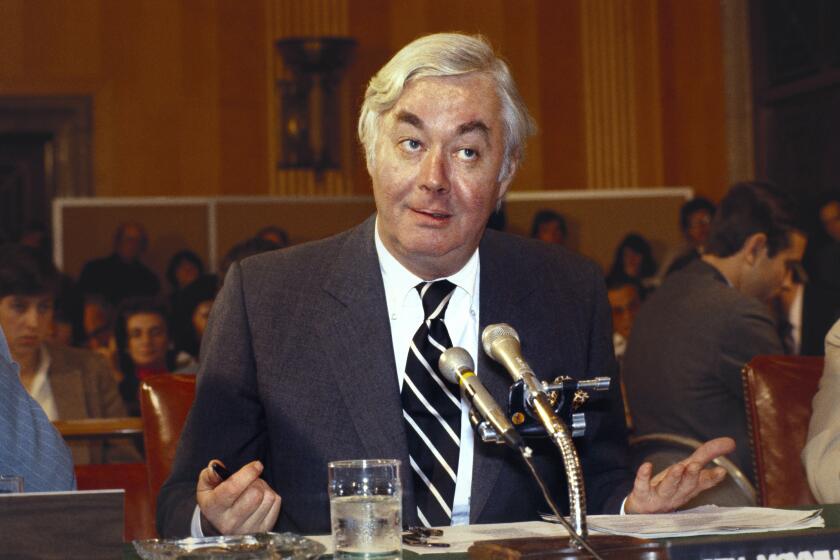Biden’s documents misstep helps Trump politically — and legally too

- Share via
WASHINGTON — When classified documents turned up in President Biden’s former office, his Delaware home and the garage housing his Corvette, the political impact was predictable. Republicans gleefully accused Biden of the same offense that prompted the FBI to raid former President Trump’s Florida estate last August.
The newly minted Republican chairmen of two House committees announced investigations of Biden — but not of Trump or former Vice President Mike Pence, who confessed that he too had found classified documents at home. Democrats lamented that Biden and his staff had squandered the moral high ground.
The differences between the cases are significant. Trump took hundreds of classified documents home; Biden a far smaller number, assuming no more turn up. Trump resisted returning documents to the government; Biden’s lawyers turned them in promptly. Trump appears to have held on to documents on purpose; Biden’s aides say his mistakes were inadvertent.
Still, the impact of the Biden documents is likely to extend beyond whataboutism and congressional hearings. Former prosecutors say the discoveries will make it more difficult for Jack Smith, the special prosecutor investigating Trump, to indict the former president for his Mar-a-Lago misdeeds.
Before Washington dives further into the rabbit hole, maybe both sides should stop and remember what Sen. Daniel Patrick Moynihan wrote a generation ago: “Unless secrecy is reduced, it cannot be protected.”
“It complicates things,” warned Donald Ayer, who was a top Justice Department official in the George H.W. Bush administration. “It would take a tin ear for Jack Smith to bring an indictment on the Mar-a-Lago case anytime soon.”
In theory, perhaps, one investigation shouldn’t affect the other. But these aren’t run-of-the-mill cases. They involve a president, a former president and a former vice president — all three of whom appear to be running for president in 2024.
On a practical level, the Biden and Pence cases could make it harder to win a conviction against Trump — and that could make Smith, the special counsel, hesitate to bring an indictment.
Under Justice Department regulations, a prosecutor must consider whether the evidence in a case is strong enough to win conviction from a jury. The fact that Trump isn’t the only former officeholder who took classified documents home will matter.
“It will inevitably affect a jury; they’ll wonder why the government isn’t prosecuting Joe Biden,” said Paul Rosenzweig, another former Justice Department official. “A prosecutor doesn’t want to go to trial and lose.”
On a higher plane, Atty. Gen. Merrick Garland wants to appear evenhanded — especially if a prosecutor he appointed is considering the unprecedented step of indicting a former president.
“We do not have different rules for Democrats or Republicans,” Garland said last week. “We apply the facts and the law in each case in a neutral, nonpartisan manner.”
That’s why he appointed a second special counsel, Robert K. Hur, to investigate the Biden documents.
But that didn’t solve the problem.
If Smith indicts Trump, but Hur does not indict Biden, Trump supporters will inevitably charge that a double standard is at work. Many of them will believe it.
It won’t be only dyed-in-the-wool Trumpists who are troubled. The spectacle of Biden’s Justice Department prosecuting his predecessor would discomfit many who don’t love Trump.
In an ideal world, both prosecutors could report their findings and explain their decisions at the same time, so the rest of us could compare the two cases side by side.
But the two special counsels are supposed to operate independently, without day-to-day supervision from the Justice Department. There’s no mechanism for them to coordinate their decisions.
“Neither special counsel will be in a position to explain how his decisions are consistent with the other’s,” Jack Goldsmith of Harvard Law School wrote last week in the New York Times. “Nor can the attorney general obviously do so, since the key decisions are formally out of his control.”
Even if the two special counsels wanted to report simultaneously, the timing of their cases may get in the way. The FBI has been investigating Trump’s Mar-a-Lago documents for almost a year. The investigation of Biden’s documents, by contrast, started only a few weeks ago.
Special counsels usually have the luxury of working without a fixed deadline. But it’s in the public interest to resolve these cases before voters begin choosing the candidates for the 2024 presidential election.
“The clock is ticking,” Rosenzweig noted. But in the Biden case, “Hur won’t be done before the fourth quarter of this year. It can’t be done any faster.”
Garland can’t control the prosecutors’ timing — at least not without violating the principle that they are intended to be independent of the attorney general.
But the two cases could still end up on his desk. So will the burden of explaining to Americans why the outcome was fair. If Garland hoped appointing special counsels would get him off the hook, it appears he guessed wrong.
More to Read
Get the L.A. Times Politics newsletter
Deeply reported insights into legislation, politics and policy from Sacramento, Washington and beyond. In your inbox three times per week.
You may occasionally receive promotional content from the Los Angeles Times.












